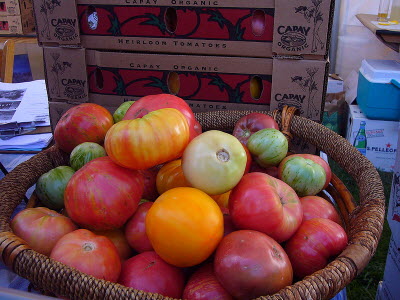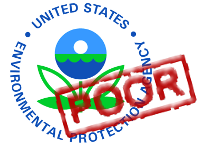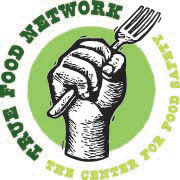Farmers and agricultural organizations demanded their right to be heard after Monsanto asked the court to dismiss the lawsuit challenging the company’s aggressive enforcement of genetically modified seed patents.
|
|
|||
Organic - News and Opinion“Society stands on the precipice of forever being bound to transgenic agriculture and transgenic food” reads the first sentence in the amended complaint filed by farmers, environmentalist, researchers and consumer groups against Monsanto. New plaintiffs strengthen the resolve to stand up to Big M. The Future of Food conference can be neatly summed up by this timeless aphorism uttered by Mahatma Gandhi: You must be the change you want to see in the world. Let’s get to work! The organic food sector grew last year by nearly 8 percent, far out-pacing the overall stagnant U.S. food industry and providing new jobs. Consumers continue voting organic with their dollars. Lawsuit by organic groups asks Federal court to invalidate Monsanto’s patents and to end Monsanto’s practice of suing farmers over GMO contamination. The usual and unusual politics surrounding the deregulation of genetically engineered alfalfa. According to the global market research firm RNCOS, the organic food market in the United States is to continue rapid growth that was barely quieted by the economic recession. The latest stories: Organic pest management proven to be better than pesticides. Chemical farming interests boost anti-pesticide message. GE tree trials continue. Why do we need GM potatoes? GM contamination lawsuits. Personal story about becoming a locavore. And more. It’s well documented that the conventional factory-farm method of raising animals for food – especially cattle – is an energy-intensive, inhumane (for animals and workers), water-guzzling, poisonous-emissions-releasing, earth-polluting endeavor… Omnivores who have no interest in giving up their bacon or steaks should switch to sustainable, humane versions of their favorite proteins. Immediately. The Institute for Responsible Technology (a.k.a. The Campaign for Healthier Eating in America) together with the Center for Food Safety, have updated their Non-GMO Shopping Guide. The updated Guide includes new features, such as a free iPhone App, ShopNoGMO, and it also cross-references products that participate with the Non-GMO Project’s third party GMO Avoidance Verification Program. In December 2009, the USDA has released its draft environmental impact statement proposing to deregulate Monsanto’s genetically engineered alfalfa. GMO Journal submitted its public comment to the agency urging it to continue regulating GE alfalfa. There is still time to take action before the March 3, 2010 deadline. Do you part — tell USDA to reject Monsanto’s GE alfalfa. A new Non-GMO Shopping Guide is now available from the Non-GMO Project featuring tips on avoiding GMOs and a list of food companies that have made a commitment to providing GE free products. We recommend that you check it out. Industry bias, lax scientific standards, exemption of food crops containing pesticides from registration requirements, and failure to independently monitor GM crops after approval, are among the regulatory problems exhibited by the EPA when it comes to regulating GMOs. In a world where sometimes it seems that our life is determined by someone or something else, it is refreshing to realize that your individual choice can and does make a profound difference. You can reduce environmental degradation by going vegetarian, or, at a minimum, by consuming less meat. Our friends a The Center For Food Safety have released an updated Shoppers Guide to Avoiding Genetically Engineered Foods. The guide is helpful because currently United States has no labeling requirements for foods and consumers have no way of knowing if the foods they eat contain or are likely made of genetically engineered ingredients.G Whole Foods announced that it is partnering with the Non-GMO Project to use the Project’s Product Verification Program (”PVP”) to certify Whole Foods’ private labeling food line as being free from genetically modified ingredients. This Pocket Shopper’s Guide to Avoiding GE Foods published by The Center for Food Safety answers the most pertinent and urgent consumer question about genetically modified foods. Which supermarket foods are genetically engineered? |
|||
|
 |
|||










